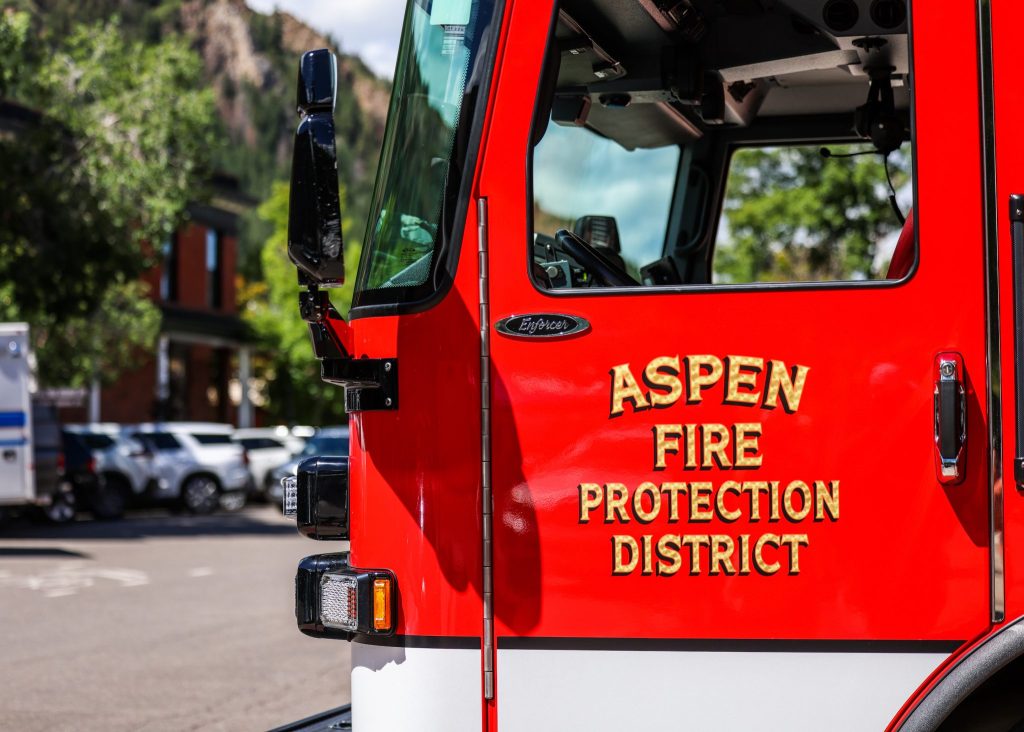Colorado lawmakers abandon proposal to create $50 million fund, provide housing assistance for local fire districts
Rep. Elizabeth Velasco says the state needs to find a way to shore up funding for fire districts amid compounding pressures

Austin Colbert/The Aspen Times
A last-minute legislative proposal that would have created a $50 million fund to help Colorado fire districts pay for trucks and equipment died in the final days of the 2025 legislative session.
House Bill 1078, initially meant to provide grants and training opportunities to grow the workforce of state foresters and firefighters, languished for months amid the state’s $1.2 billion budget shortfall.
But in a major amendment added late last month, the bill was rewritten to create a $50 million revolving fund within the state treasurer’s office to issue interest-free loans to help fire districts pay for trucks, equipment, and infrastructure improvements.
Funding would have come from the state’s unclaimed property trust fund, which maintains about $1.2 billion in lost assets, such as unpaid wages, forgotten bank accounts and abandoned property.
HB 1078 would have also tapped that fund to help firefighters afford down payments and mortgages on homes.
While the legislation passed the House in a 37-27 vote last week, it died in the Senate Appropriations Committee on May 6, a day before the end of the session.
Rep. Elizabeth Velasco, D-Glenwood Springs, who sponsored the measure, said lawmakers ultimately didn’t have the time to move forward with such a major revision to the policy.
“We just couldn’t make it through,” Velasco said. “It’s upsetting.”
She pledged to renew her push to support fire districts next session, saying she has commitments from House leadership and the governor’s office to address the challenges that were created by a recent series of property tax cuts from the state.
Local districts reported losing a combined $100 million in property tax revenue following last session’s property tax cut package, according to Colorado State Fire Chiefs Executive Director Ken Watkins.
Property taxes are the primary revenue driver for local fire agencies, accounting for upwards of 90% of their budgets. At the same time, demands for service are increasing, with some districts seeing between a 20% and 25% increase in call volume, said Watkins, a longtime fire chief.
“Some of the districts have been in a pretty big bind because of the cost to provide services and the reductions in revenue,” he said.
Lawmakers had floated other initiatives this session to provide more support for fire districts, including establishing enterprise funds that could be financed through fees, rather than siphoning money from the state’s already stressed general fund.

“We were looking at an enterprise, but it’s not going to happen this year,” said Sen. Lisa Cutter, D-Littleton, who sponsored several wildfire-related bills this session. “I’m real disappointed.”
Velasco said the financial pressure could be further exacerbated as cuts to the federal workforce trickle down to local communities. Layoffs in the U.S. Forest Service and the Federal Emergency Management Agency, known as FEMA, could jeopardize wildfire mitigation and critical emergency responses.
“To me, it’s really about public safety, about supporting our first responders, and also we don’t know what’s going on with the federal government,” she said.
Lawmakers, who were forced to cut $1.2 billion in the state’s upcoming fiscal year’s budget, have warned that the state’s fiscal woes will likely continue next session. The funding pressures are being driven by increased health care spending and a cap on government revenue as part of the Taxpayer’s Bill of Rights.
As a result, lawmakers will need to explore alternative funding sources for their priorities.
Velasco said tapping the unclaimed property fund was a “responsible use” of the money to help fire districts but added she’s exploring a range of ideas that could become proposals next year.
Preps: Basalt golfers outshoot Skiers at home tourney; all practices underway
Just as Aspen did a day prior, the Basalt High School boys golf team defended its home grass on Tuesday by winning its own Longhorn Classic.










